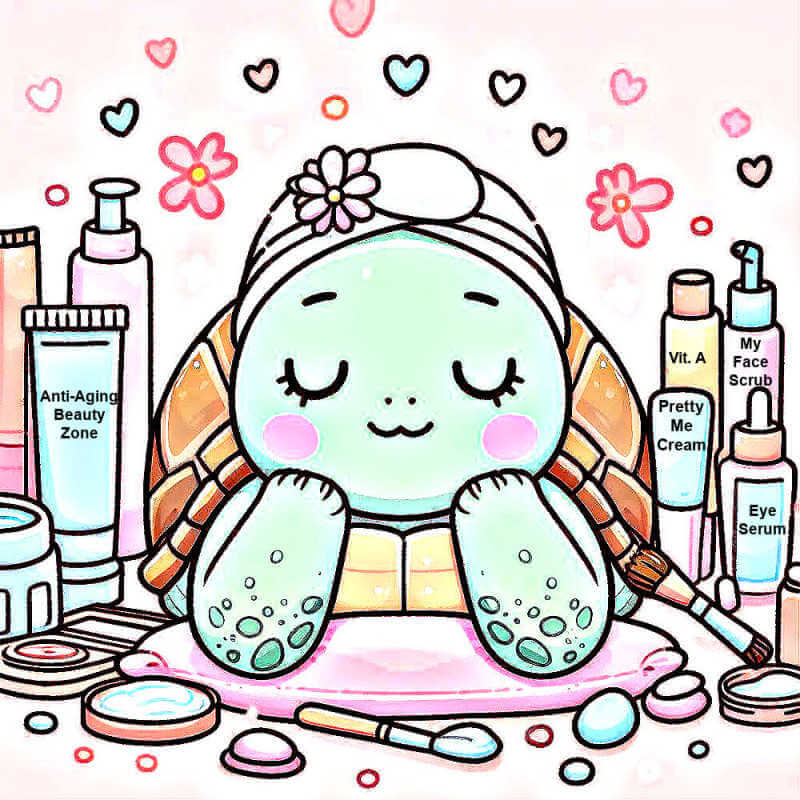- Home
- Skincare Guide
- Homemade Skincare
- Oily Skin Masks
6 Best Homemade Face Masks for Oily, Acne-Prone Skin (Easy)
Oily, acne-prone skin is frustrating. Shine happens fast. Breakouts pop up anyway.
I’ve tested many recipes. Some harsh, some messy. A few stood out—simple, safe, effective. These calm oil and keep pores clearer.
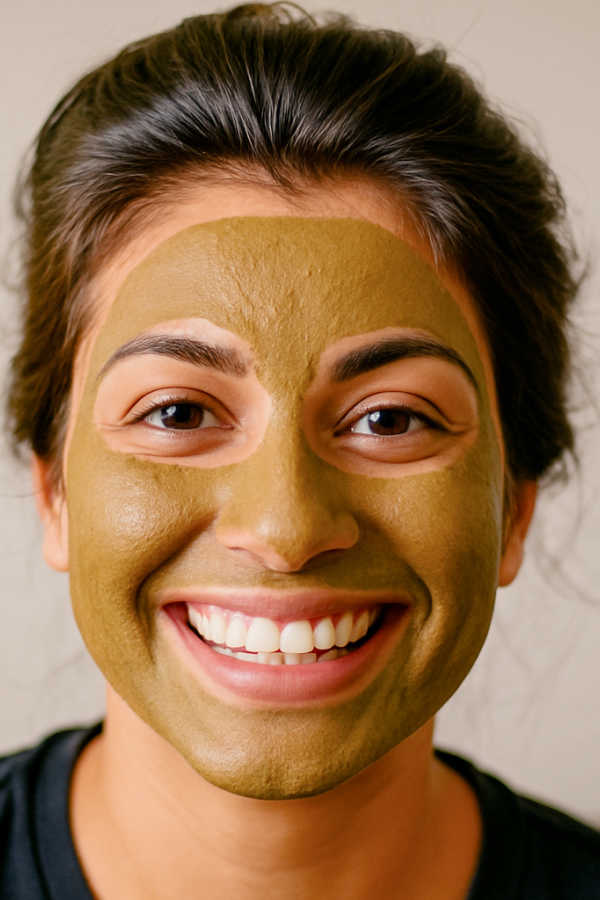
Below, you’ll find my favorite homemade face masks for oily, acne-prone skin. Each one is designed to target the most common issues: pimples, blackheads, and clogged pores.
1. Clay mask for oily skin and large pores
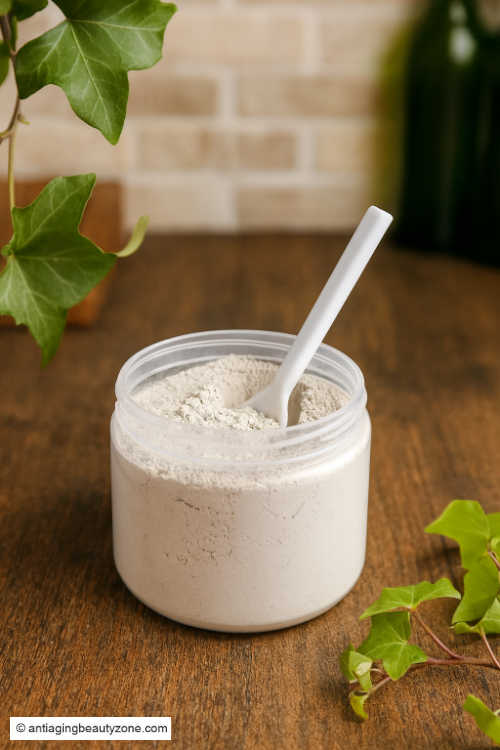
Clay is the classic go-to for oil control. It absorbs excess sebum, tightens pores, and leaves skin feeling fresh—not greasy.
Recipe:
- 1 tbsp bentonite or kaolin clay (unscented cat-litter clay works too—just plain 100% clay)
- 2–3 tsp water or green tea (to make a paste)
How to use: Apply evenly, let dry for 10–15 minutes, then rinse with warm water. Use 1–2 times a week.
Why it works: Clay masks are one of the best homemade face masks for oily skin and blackheads because they physically draw out impurities and minimize clogged pores.
Best cosmetic clays for DIY masks
Bentonite clay
Strong oil absorption and detox pull.
Avoid metal tools; it can react. Patch test first.
White kaolin clay
Gentle and steady. Cleans deeply and lightly exfoliates.
Good for most skin types, including sensitive.
French green clay
Mineral-rich and toning. Helps draw out oil as it dries.
Skin may look fresher after use. Suitable for many skin types.
Rose clay (pink kaolin)
Soft, rosy kaolin with iron oxides.
Calms, lightly exfoliates, and reduces the look of redness.
Quick tip
Start once weekly. Hydrate lightly after masking.
Listen to your skin; comfort beats “more is better.”
2. Aspirin mask for oily, acne-prone skin
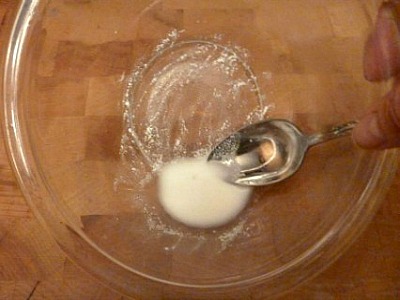
This one is a little old-school but still effective. Aspirin contains salicylic acid-like compounds that can help exfoliate and calm inflamed pimples.
Recipe:
- 2–3 uncoated aspirin tablets, crushed
- 1 tsp water
- Optional: ½ tsp yogurt or honey (to buffer dryness)
How to use: Mix into a paste, apply to problem areas (don’t use over broken skin), leave on 5–10 minutes, then rinse.
Note: Patch test first. Skip if you’re aspirin-sensitive, on blood thinners, or skin is broken. Prefer a gentler option? Try an enzyme face mask.
3. Egg white & lemon pore-tightening mask
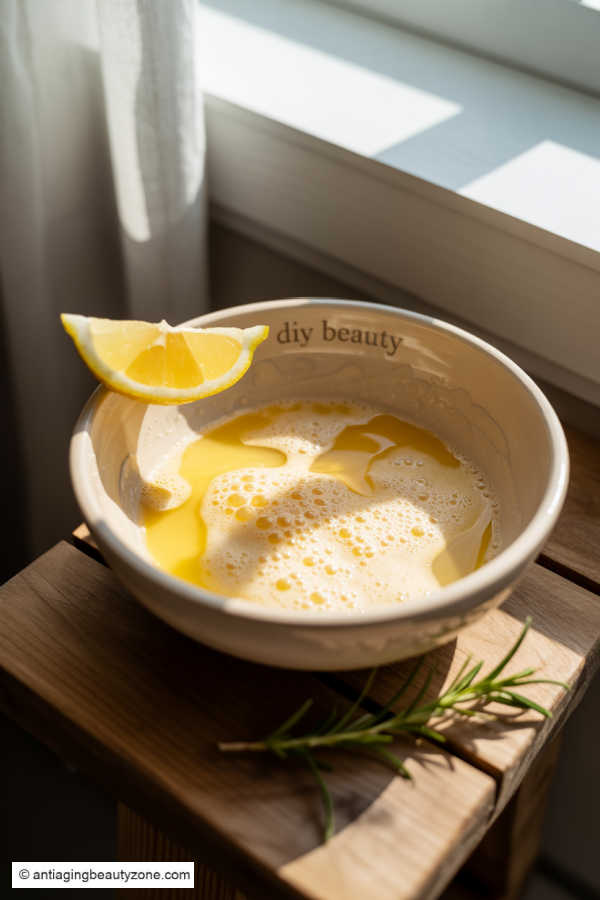
Egg whites temporarily tighten the look of large pores and help control shine. A squeeze of lemon adds a clarifying effect.
Recipe:
- 1 egg white
- A few drops of fresh lemon juice
How to use: Whisk until frothy, apply thinly to face, let dry completely (10–15 minutes), then rinse.
Why it works: This homemade face mask for large pores helps skin look smoother and firmer, while reducing the greasy feel.
4. Coffee & yogurt mask for clogged pores
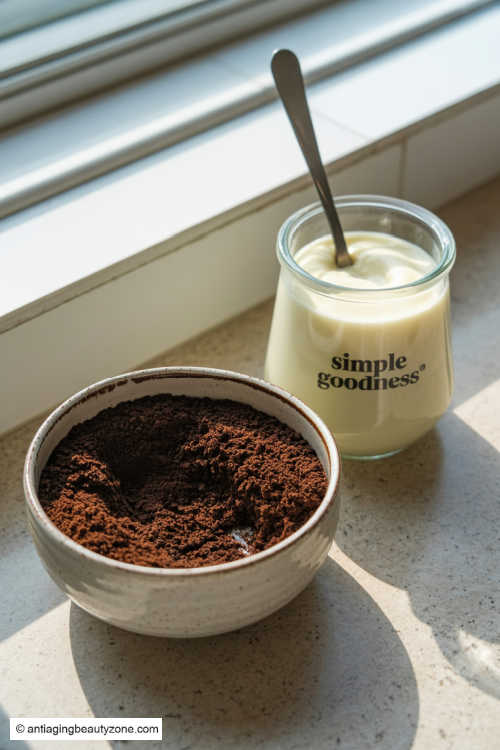
Coffee grounds are a gentle exfoliator that lift away debris, while yogurt adds lactic acid to help unclog pores without stripping.
Recipe:
- 1 tbsp finely ground coffee
- 1 tbsp plain yogurt
How to use: Massage gently into skin, leave on for 5 minutes, then rinse.
Why it works: This homemade face mask to unclog pores clears dead cells that can trap oil and bacteria. I love using coffee on my face for tightening and brightening. Check out 40 more ways to use coffee face masks and scrubs!
5. Aloe vera & cucumber calm-down mask
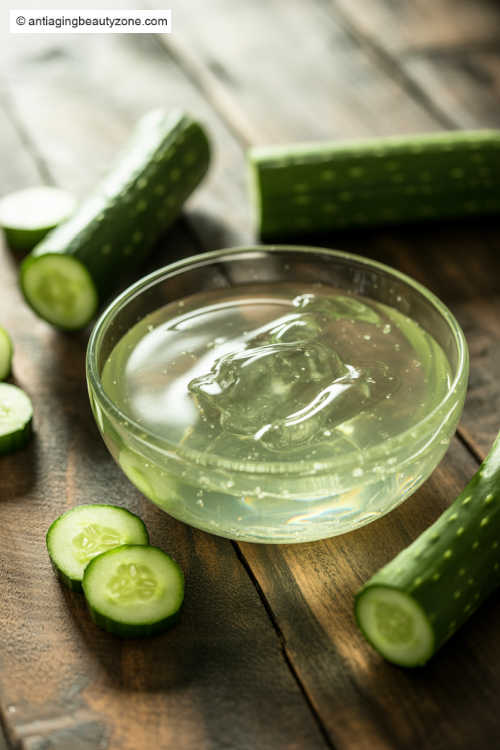
Aloe soothes. Cucumber cools. Skin feels balanced, not tight.
Recipe:
- 1 tbsp pure aloe vera gel
- 1 tbsp finely grated cucumber (drained)
How to use: Mix, apply 10 minutes, rinse. Two times weekly.
Why it helps: Lightweight hydration reduces rebound oil and redness.
6. Oatmeal & yogurt calming mask
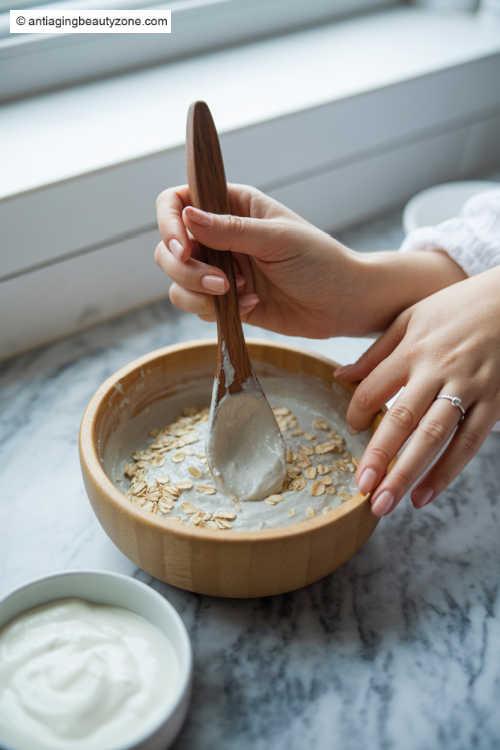
Oats calm redness and absorb oil. Yogurt adds gentle exfoliation.
Recipe:
- 1 tbsp ground oatmeal (finely blended)
- 1 tbsp plain yogurt
How to use: Mix, apply 10–15 minutes, rinse gently.
Why it helps: Smooths texture, soothes irritation, and reduces shine.
Tips for using homemade masks safely
Keep these safety tips in mind:
- Stick to 1–2 times a week—over-masking can irritate oily, acne-prone skin.
- Always patch-test new ingredients on a small spot.
- Follow with a lightweight, non-comedogenic moisturizer so your skin doesn’t rebound with more oil.
Final takeaway
If you’re dealing with oily, acne-prone skin, these masks can help manage pimples, blackheads, and clogged pores without expensive products. Think of them as quick fixes for shine control—not overnight cures.
Want the big picture on masks? See my facial masks guide. It explains types, uses, and when to pick each one.
Want something gentler that boosts radiance instead of oil control? Try my homemade face masks for glowing skin.
For deeper refresh, see my gentle exfoliation guide. Or, if you love DIY recipes, don’t miss my sugar scrub hub.
FAQ: Homemade face masks
Do you have more questions about homemade masks? Ask your questions here.
Question: What is the best homemade face mask for oily, acne-prone skin?
Question: What is the best homemade face mask for oily, acne-prone skin?
Answer: Clay is my top pick. It absorbs oil and clears pores. Skin looks less shiny. Start once a week. Patch test first.
Question: Can homemade face masks help with pimples and blackheads?
Question: Can homemade face masks help with pimples and blackheads?
Answer: Yes—masks with clay, aspirin, or coffee gently exfoliate and decongest skin, which helps pimples heal faster and keeps blackheads from forming.
Question: Which mask is good for large pores?
Question: Which mask is good for large pores?
Answer: Egg white tightens temporarily. Clay reduces the look of large pores by absorbing oil. Results are short-term.
Question: How often should I use a mask?
Question: How often should I use a mask?
Answer: One to two times weekly is best. More is not better. Overuse irritates and may cause more oil.
Question: Do aspirin face masks really work for acne?
Question: Do aspirin face masks really work for acne?
Answer: Aspirin has salicylic-like compounds that exfoliate and calm pimples. Not for sensitive skin or aspirin allergy. Safer alternative: Enzyme Mask.
Want More?
I share quick routines, beauty tweaks, and what’s working for me — straight to your inbox. Join the Club and get this free Cheek Shaper Video.
About the Author:
Linda Robison is a Facial Fitness Specialist and the founder of Anti-Aging Beauty Zone. With decades of hands-on experience, she shares practical, natural ways to lift and brighten mature skin—without expensive or invasive treatments.
Before you go ....
Please tap on the💙in the bottom right corner if you found this page helpful.
FOLLOW ME FOR MORE TIPS:
SHARE OR SAVE FOR LATER:




